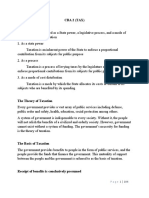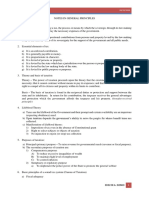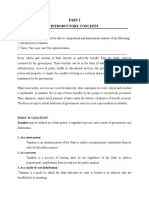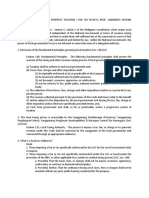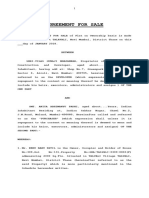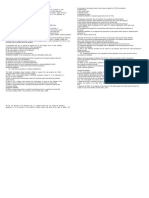0% found this document useful (0 votes)
23 views6 pagesSASDASDASD
Taxation is the sovereign power to impose financial burdens for government revenue, grounded in the necessity of government functions and the reciprocal duties between the state and its citizens. Key concepts include the lifeblood doctrine, equity in taxation, and the inherent powers of the state, which encompass taxation, police power, and eminent domain. The document also discusses various limitations and principles of taxation, including constitutional constraints and the importance of uniformity and equality in tax obligations.
Uploaded by
heloCopyright
© © All Rights Reserved
We take content rights seriously. If you suspect this is your content, claim it here.
Available Formats
Download as PDF, TXT or read online on Scribd
0% found this document useful (0 votes)
23 views6 pagesSASDASDASD
Taxation is the sovereign power to impose financial burdens for government revenue, grounded in the necessity of government functions and the reciprocal duties between the state and its citizens. Key concepts include the lifeblood doctrine, equity in taxation, and the inherent powers of the state, which encompass taxation, police power, and eminent domain. The document also discusses various limitations and principles of taxation, including constitutional constraints and the importance of uniformity and equality in tax obligations.
Uploaded by
heloCopyright
© © All Rights Reserved
We take content rights seriously. If you suspect this is your content, claim it here.
Available Formats
Download as PDF, TXT or read online on Scribd
/ 6




